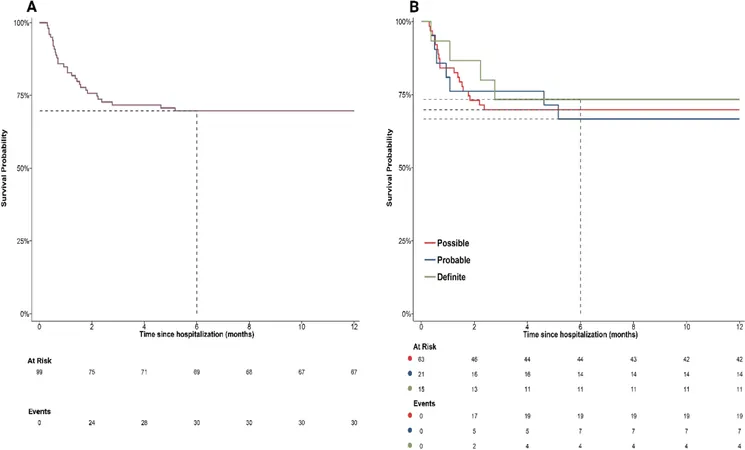
Breakthrough Research Offers Hope in the Battle Against Breast Cancer Metastasis
2025-04-09
Author: Ming
Unlocking the Secrets of Cancer Spread
Metastasis accounts for over 90% of cancer fatalities in the U.S., as it allows tumors to invade other parts of the body. Researchers at the Johns Hopkins Kimmel Cancer Center are diving deep into the mechanics behind breast cancer metastasis, aiming to discover new therapeutic options that could save lives.
NIH Funding Fuels Pioneering Research
The ambitious research initiative has been bolstered by support from the National Institutes of Health (NIH), the foremost funder of cancer research in the country. Professor Andrew Ewald highlights the NIH's unique capacity to commit long-term support to ambitious ideas—essential for projects that require years of investigation.
Groundbreaking Findings on Cancer Cells
Since its inception in 2008, the project has made remarkable strides in decoding the biological factors that allow cancer cells to thrive in new environments. One of the team's significant breakthroughs transpired last year when they meticulously analyzed cancer tissue samples from 24 individuals who donated them through a rapid autopsy program post-mortem.
Identifying Dangerous Neighbors
Unlike previous studies that focused on the general environment around cancer cells, the Johns Hopkins team honed in on the immediate vicinity of the most aggressive cells. They pinpointed a signature of 36 biomarkers indicative of cells likely to initiate metastasis.
Macrophages: The Unexpected Key Players
Among their findings, researchers discovered a noteworthy class of immune cells called macrophages— a mere 1-5% of tumor cells— that were in close contact with these spreading cancer cells. Dr. Won Jin Ho, an oncologist at the Kimmel Cancer Center, noted that these macrophage subtypes could provide crucial insight into the cancer microenvironment.
A New Target for Immunotherapy?
Macrophages typically act as guardians of the immune system, consuming foreign cells and rallying reinforcements. Yet, their presence in abundance within tumors has been linked to poorer patient outcomes and reduced effectiveness of immunotherapies. This finding could steer the focus toward developing new immunotherapy strategies aimed at dismantling these harmful neighborhoods of cancer cells.
A Vision for the Future of Cancer Treatment
“Our goal as discovery-based scientists is to innovate ways of restructuring the immune system's environment around cancer cells,” says Ewald. With ongoing research and collaboration, the team is hopeful about developing biological therapies that could redefine how we tackle cancer.
Collaborative Efforts Fueling Progress
This groundbreaking research brought together an extensive team of experts from Johns Hopkins, including Atul Deshpande, Jae Lee, Yeonju Cho, Sarah Shin, Erin Coyne, Alexei Hernandez, Xuan Yuan, Zhehao Zhang, and Ashley Cimino-Mathews, all committed to combating breast cancer.



 Brasil (PT)
Brasil (PT)
 Canada (EN)
Canada (EN)
 Chile (ES)
Chile (ES)
 Česko (CS)
Česko (CS)
 대한민국 (KO)
대한민국 (KO)
 España (ES)
España (ES)
 France (FR)
France (FR)
 Hong Kong (EN)
Hong Kong (EN)
 Italia (IT)
Italia (IT)
 日本 (JA)
日本 (JA)
 Magyarország (HU)
Magyarország (HU)
 Norge (NO)
Norge (NO)
 Polska (PL)
Polska (PL)
 Schweiz (DE)
Schweiz (DE)
 Singapore (EN)
Singapore (EN)
 Sverige (SV)
Sverige (SV)
 Suomi (FI)
Suomi (FI)
 Türkiye (TR)
Türkiye (TR)
 الإمارات العربية المتحدة (AR)
الإمارات العربية المتحدة (AR)